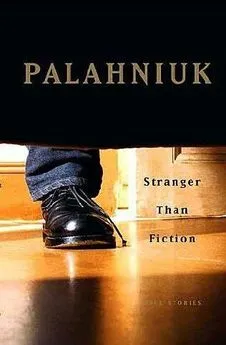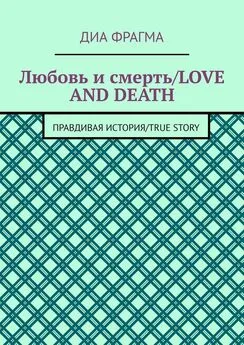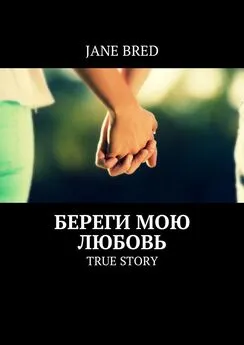Chuck Palahniuk - Stranger Than Fiction (True Stories)
- Название:Stranger Than Fiction (True Stories)
- Автор:
- Жанр:
- Издательство:неизвестно
- Год:неизвестен
- ISBN:нет данных
- Рейтинг:
- Избранное:Добавить в избранное
-
Отзывы:
-
Ваша оценка:
Chuck Palahniuk - Stranger Than Fiction (True Stories) краткое содержание
"Full of wonderful moments…Palahniuk's voice is so distinctive and intimate-he writes as though he is recounting a great story to a close friend." — Los Angeles Times
"Step into Palahniuk's dark worldview and watch for what crawls out. These stories are true to him and no one else." — The Oregonian
“One of the oddest and most oddly compelling collections to come along for some time.” —The Milwaukee Journal Sentinel
“In Chuck Palahniuk’s world, the ride is fast, often disturbing, and there is never any holding back.” —The New Orleans Times-Picayune
“Eccentric, idiosyncratic, and often entertaining.” —The Onion
"Priceless grace notes from an exceptionally droll and sharp-eyed observer." — The New York Times
“Rarely does a collection of essays continually resonate with a main theme and accumulate a weight that would lead you to call it a great book. . This is a pretty great book.” —The Seattle Times
"The book's lurid appeal rests largely on being let in on Palahniuk's secrets, the raw material for much of his fiction. . Acts that give spice to his novels are made more menacing when encountered in the real world." — Black Book
Stranger Than Fiction (True Stories) - читать онлайн бесплатно полную версию (весь текст целиком)
Интервал:
Закладка:
On every book tour, people told me how each time they sat in the emergency exit row on an airplane, the whole flight would be a struggle not to pop open that door. The air sucking out of the plane, the oxygen masks falling, the screaming chaos and "Mayday! Mayday!" emergency landing, it was all so clear. That door, so begging to be opened.
The Danish philosopher Søren Kierkegaard defines dread as the knowledge of what you must do to prove you're free, even if it will destroy you. His example is Adam in the Garden of Eden, happy and content until God shows him the Tree of Knowledge and says, "Don't eat this." Now Adam is no longer free. There is one rule he can break, he must break, to prove his freedom, even if it destroys him. Kierkegaard says the moment we are forbidden to do something, we will do it. It is inevitable.
Monkey think, monkey do.
According to Kierkegaard, the person who allows the law to control his life, who says the possible isn't possible because it is illegal, is leading an inauthentic life.
In Portland, Oregon, someone is filling tennis balls with matchheads and taping them shut. They leave the balls on the street for anyone to find, and any kick or throw will make them explode. So far, a man's lost a foot; a dog, its head.
Now the graffiti taggers are using acid glass-etching creams to write on shop and car windows. At suburban Tigard High School, an unidentified teenage boy takes his shit and wipes it around the walls of the men's bathroom. The school knows him only as the "Una-Pooper." Nobody's supposed to talk about him because the school is afraid of copycats.
As Kierkegaard would say, every time we see what's possible, we make it happen. We make it inevitable. Until Stephen King wrote about high school losers killing their peer groups, school shootings were unknown. But did Carrie and Rage make it inevitable?
Millions of us paid money to watch the Empire State Building destroyed in Independence Day. Now the Department of Defense has enrolled the best Hollywood creative people to brainstorm terrorist scenarios, including director David Fincher, who made the Century City skyline fall down in Fight Club. We want to know every way we might be attacked. So we can be prepared.
Because of Ted Kaczynski, the Unabomber, you can't mail a package without going to a post office clerk. Because of people dropping bowling balls onto freeways, we have fences enclosing highway overpasses.
All of this reaction, as if we can protect ourselves against everything.
This summer, Dale Shackleford, the man convicted of killing my father, said: Hey, the state could give him the death penalty, but he and his white-supremacist friends had built and buried several anthrax bombs around Spokane, Washington. If the state killed him, someday a backhoe would rupture a buried bomb and tens of thousands would die. Among themselves, the prosecution team started calling this kind of statement a "Shackle-Freudian lie."
What's coming is a million new reasons not to live your life. You can deny your possibility to succeed and blame it on something else. You can fight against everything-Margaret Thatcher, property owners, the urge to open that door mid-flight… everything you pretend keeps you down. You can live Kierkegaard's inauthentic life. Or you can make what Kierkegaard called your Leap of Faith, where you stop living as a reaction to circumstances and start living as a force for what you say should be.
What's coming is a million new reasons to go ahead.
What's going out is the cathartic transgressive novel.
Movies like Thelma and Louise, books like The Monkey Wrench Gang, their audience is less likely to laugh and understand. For the time being, we get to pretend we're not our own worst enemy.
Brinksmanship
In this one bar, you couldn't set your beer bottle on the table or cockroaches would climb up the label and drown themselves.
Anytime you set down a beer, you'd have a dead cockroach in your next mouthful. There were Filipino strippers who came out between their sets to shoot pool in string bikinis. For five dollars, they'd pull a plastic chair into the shadows between stacked cases of beer and lap dance you.
We used to go there because it was near Good Samaritan Hospital.
We'd visit Alan until his pain medication put him to sleep, then Geoff and I would go drink beer. Geoff, grinding his beer bottle on roach after roach as they ran across our table.
We'd talk to the strippers. We talked to guys at other tables. We were young, young-ish, late twenties, and one night a waitress asked us, "If you're already watching dancers in a dive like this, what will you be doing when you're old men?"
At the next table was a doctor, an older man who explained a lot of things. He said how the stage was spotlighted with red and black lights because they hid the bruises and needle marks on the dancers. He showed how their fingernails, their hair and eyes told their childhood diseases. Their teeth and skin showed how well they ate. Their breath in your face, the smell of their sweat could tell you how they'd probably die.
In that bar, the floor, tables, the chairs, everything was sticky. Someone said Madonna went there a lot when she was in Portland filming Body of Evidence, but by then I'd quit going. By then Alan and his cancer were both dead.
It's a story I've told before, but I once promised to introduce a friend to Brad Pitt if she'd let me assist in dissecting some medical-school cadavers.
She'd failed premed three times already, but her father was a doctor so she just kept going back. She was my age now, middle-aged, the oldest premed in her class, and all night we dissected three cadavers so first-year students could examine them the next day.
Inside each body was a country I'd always heard about but never thought I'd visit. Here was the spleen and the heart and liver. Inside the head was the hypothalamus, the plaques and tangles of Alzheimer's. Still, I was most amazed by what wasn't there. These yellow, shaved, and leathery bodies were so different from my friend who used her saws and knives. For the first time, I saw that maybe human beings are more than their bodies. That maybe there is a soul.
The night she met Brad, we walked out of soundstage 15 on the Fox lot. It was after midnight, and we walked through the dark standing New York sets used in a million productions since they were built for Barbra Streisand in Hello, Dolly! A taxi passed us with New York license plates. Steam rose from fake manhole covers. Now the sidewalks were full of people in winter coats, carrying shopping bags from Gumps and Bloomingdales. In another minute, someone waved to stop us from walking-us laughing and wearing shorts and T-shirts-into a Christmas episode of NYPD Blue.
We walked another way, past an open soundstage where spotlighted actors in blue surgical scrubs leaned over an operating table and pretended to save someone's life.
This other time, I was scrubbing the kitchen floor and pulled a muscle in my side. That's how it felt at first.
For the next three days, I'd go to the urinal and not pee, and by the time I left work and drove to the doctor's office, the pain had me duck-walking. By then, the doctor from the strip bar was my doctor. He felt my back and said, "You need to get to the hospital or you're going to lose this kidney."
A few days later, I called him from the bathtub, where I'm sitting in a puddle of piss and blood, drinking California champagne and popping Vicodins. On the phone, I tell him, "I passed my stone," and in my other hand is a nine-millimeter ball of tiny oxalic acid crystals, all of them razor-sharp.
The next day, I flew to Spokane and accepted an award from the Pacific Northwest Booksellers Association for Fight Club.
The week after, on the day of my follow-up appointment, someone called to say the doctor was dead. A heart attack in the night, and he died alone, on the floor, next to his bed.
My fiberglass bathtub still has a blood-red ring around it.
The black and red lights. The standing sets. The embalmed cadavers. My doctor, my friend, dead on his bedroom floor. I want to believe they're all just stories now. Our physical bodies, I want to believe that they're all just props. That life, physical life, is an illusion.
And I do believe it, but only for a moment at a time.
It's funny, but the last time I saw my father alive was at my brother-in-law's funeral. He was young, my brother-in-law, young-ish, in his late forties, when he had the stroke. The church gave us a menu and said to choose two hymns, a psalm, and three prayers. It was like ordering a Chinese dinner.
My sister came out of the viewing room, from her private viewing of her husband's body, and she waved our mother inside, saying, "There's been a mistake."
This thing in the casket, drained and dressed and painted, looked nothing like Gerard. My sister said, "That's not him."
This last time I saw my father, he handed me a blue-striped tie and asked how to tie it. I told him to hold still. With his collar turned, I looped the tie around his neck and started tying it. I told him, "Look up."
It was the opposite of the moment when he'd shown me the trick of the rabbit running around the cave and he'd tied my first pair of shoes.
That was the first time in decades my family had gone to mass together.
While I'm writing this, my mother calls to say my grandfather's had a series of strokes. He's unable to swallow, and his lungs are filling with fluid. A friend, maybe my best friend, calls to say he has lung cancer. My grandfather's five hours away. My friend's across town. Me, I have work to do.
The waitress used to say, "What will you be doing when you're old men?"
I used to tell her, "I'll worry about that when I get there."
If I get there.
I'm writing this piece right on deadline.
My brother-in-law used to call this behavior "brinksmanship," the tendency to leave things until the last moment, to imbue them with more drama and stress and appear the hero by racing the clock.
"Where I was born," Georgia O'Keeffe used to say, "and where and how I have lived is unimportant."
She said, "It is what I have done with where I have been that should be of any interest."
I'm sorry if this all seems a little rushed and desperate.
It is.
Now I Remember…
Item: Twenty-seven boxes of Valentine's candy, cost $298.
Item: Fourteen talking robotic birds, cost $112.
As April 15 gets closer and closer, my tax preparer, Mary, keeps calling, asking, "What is this all about?"
Item: Two nights at the Carson Hilton in Carson, California, February 21, 2001.
Mary asks, why was I in Carson? The twenty-first is my birthday. What about this trip makes it a business deduction?
The Valentine's candy, the talking birds, the nights in the Carson Hilton, they make me so glad I keep receipts. Otherwise I'd have no idea. A year later, I have no memory about what these items represent.
That's why, the moment I saw Guy Pearce in Memento, I knew finally someone was telling my story. Here was a movie about the predominant art form of our time:
Note taking.
All my friends with PalmPilots and cell phones, they're always calling themselves and leaving reminders to themselves about what's about to happen. We leave Post-it notes for ourselves. We go to that shop in the mall, the one where they engrave whatever shit you want on a silver-plated box or a fountain pen, and we get a reminder for every special event that life goes by too fast for us to remember. We buy those picture frames where you record a message on a sound chip. We videotape everything! Oh, and now there's those digital cameras, so we can all email around our photos-this century's equivalent of the boring vacation slide show. We organize and reorganize. We record and archive.
Читать дальшеИнтервал:
Закладка:








